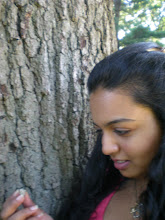Hmm... did anyone else feel, as they were reading Approaching Ice, that they weren't reading 'modern poetry'? Modern art in general, I feel, comes with this expectation that you are about to see something very strange or incomprehensible or that breaks all the rules. I didn't get that sense at all from Bradfield's work. Her poems seemed much more traditional than any of the other poets' works we have read.
Reading the poems in Approaching Ice makes me feel like I've stepped back in history. I don't mean stepping back into Shackleton's trip to the Pole. I mean that I feel like I've stepped into a time when there were village story-tellers. Everyone has gathered around and this person is telling us a story. We don't know how she got it, some of it is so fantastic we're not sure if it is true, but she tells it so convincingly, we think she could have been there. These poems sound to me like ballads or odes of the past. Granted, they don't necessarily follow the correct format of either of these types of poetry, but the overall feeling you get from them is the same. For example, in "Wilson's Specimens", we are observe this man, Wilson, as he takes care of his own survival. We can visualize the "black and white pelts/ feathered, sleek, unqualified by grey" of the strange birds he is hunting. It is easy for us to understand the necessity to do this when we know that there are "onions dwindl[ing] in the barrels". Bradfield doesn't jump around from image to image like Young and Flynn and Greenfield do. There is not only one central idea, but also one story or picture she is trying to show with each poem.
Another example is "Frank Hurley, Photographer on Shackleton's Endurance Expedition – 1915". The whole poem follows this man, the photographer, and the crew that he is with, having to live thinking about what is necessary for their survival at every moment, yet at the same time, creating history that will far surpass their own lives. The idea that leaving behind or having to destroy film is like destroying history is so painful, but true. At the same time, there is no price or weight that anyone could put on the film that was salvaged or that would be taken in the future. Bradfield voices this so beautifully in the last couple stanzas of the poem:
He filmed the ship breaking, left the Prestwich No. 5
in its stand, slipped a small Kodak into his pocket
with thirty eight more chances to curate what history
would be made in the unmapped time before him.
Has there ever been a better measure
of hope's precise and illogical weight?
The book is not ALL "odes" however. There are snippets of things that feel more like just a glimpse into someone's life, not a full story, or others that simply make the reader realize the magnificence of what has been accomplished. For example, in "Against Solitude", whether true or not, we realize what could very well have happened on expeditions to the Arctic. It is a glimpse into something so personal that it touches you, regardless of your views on cheating, or perhaps even homosexuality. "How long has it been since my mouth/ has held anything other than ice and pemmican?" Ack! Their loneliness cuts at me.
Finally, another poem that helps us put things into perspective, to see the historical magnitude of the events that she is describing is "On The Longing Of Early Explorers". We are reminded of how, for centuries, people hardly knew what lay beyond the land that they directly lived upon. The curiosity to know more, and the yearning to see beyond is expressed here:
O if only,
they'd say in quaint accents and obscure
sentence structures—if only the unsullied
could be discovered, if only, once found,
it could speak its own nobility and let us
empathize. Poignant, the despair that itched
beneath their powdered wigs, their longing to touch
the unspoiled, their sense that the world was already ruined.
they'd say in quaint accents and obscure
sentence structures—if only the unsullied
could be discovered, if only, once found,
it could speak its own nobility and let us
empathize. Poignant, the despair that itched
beneath their powdered wigs, their longing to touch
the unspoiled, their sense that the world was already ruined.


No comments:
Post a Comment